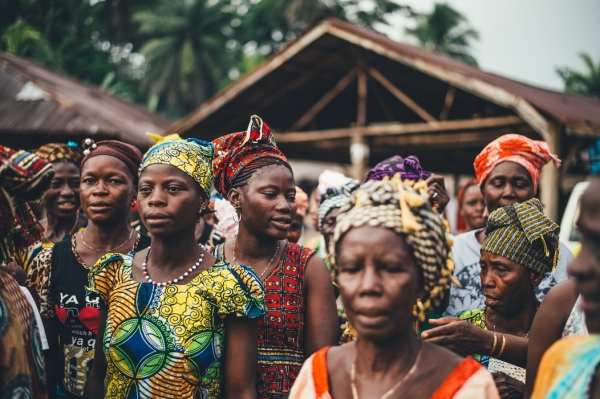Amnesty International is a non-governmental organization which mobilizes people for humanity and campaigns for change so everyone can enjoy human rights. During a research undertaken between November 2020 and May 2021, it has examined the long-term mental health impact of the 11-year civil war and Ebola epidemic in Sierra Leone on people who experienced traumatic events during that time and the challenges they face in accessing quality mental health and psychosocial support. Indeed, Sierra Leoneans have endured multiple and cumulative traumatic exposures in recent decades, including most significantly the 1991-2002 civil war and the 2014-2016 Ebola epidemic. Long after these experiences, the mental health impact lasts. Yet like many other low-income countries that have gone through conflict and crises, mental health services are nowhere near the level needed to meet people’s needs and fulfil their rights.
The research has been conducted through direct interviews. In total, Amnesty International interviewed 55 people, including 25 Sierra Leoneans who were directly exposed to violence during the war (12) or who contracted the Ebola virus (13), which are referred to as war and Ebola survivors by the report. They also reside in the districts of Kenema, Kono, Port Loko, Western Area Urban and Western Area Rural districts. Amnesty International also interviewed Sierra Leonean mental health professionals, including mental health nurses. Others interviewed included Sierra Leonean mental health professionals, members of civil society organizations, international aid workers involved in mental health programmes, public health specialists and mental health experts.
As far as the findings of the research are concerned, despite the general resilience shown by the population, mental health needs in Sierra Leone are significant. Among the conditions these specialists reported seeing commonly are psychosis conditions, depression, anxiety, post-traumatic stress and conditions related to substance use. Those who suffered from conflict-related trauma experienced a myriad of human rights violations and abuses as well as violations of international humanitarian law they experienced or witnessed during the war and the resulting distress. On the other side, Ebola survivors suffer from an immense physical illness, the grief resulting from losing multiple family members and psychosocial effects stemming from discrimination and stigmatization. As said by both war and Ebola survivors, the impact of these ongoing health complications is further compounded by their inability to afford quality health care services and medication. The limited availability of assistive devices and prostheses, items essential to enabling persons with disabilities to live active and independent lives, is also a factor that worsens mental health of survivors. Moreover, poverty and reduced livelihood opportunities are factors which can contribute to affect survivors’ mental health and overall wellbeing. As some have witnessed, several survivors were unable to carry out their past income-generating activities due to several challenges stemming from their experiences, including physical and psychosocial impairments. In the aftermath of these traumatic experiences, few survivors were able to receive psychosocial support by humanitarian actors and the government and, according to the interviews, highlighted the value of this kind of support against suffering.
For this reason, Amnesty calls the government for a higher support against mental health effects, through not just temporary measures, but also long-term and sustainable services. Despite growing attention to the importance of mental health and psychological wellbeing in recent years and calls for better integration of mental health and psychosocial programming in humanitarian response, according to the report, international assistance for mental health has never exceeded 1% of all development assistance for health. Thus, Amnesty stresses the value of a good mental health as a fundamental human right and asks for greater protection, in order to ensure people’s ability to have functioning interactions in their community and perform daily activities
Sources:
https://reliefweb.int/sites/reliefweb.int/files/resources/AFR5140952021ENGLISH.PDF
Author Jasmina Saric; Editor Gianpaolo Mascaro







